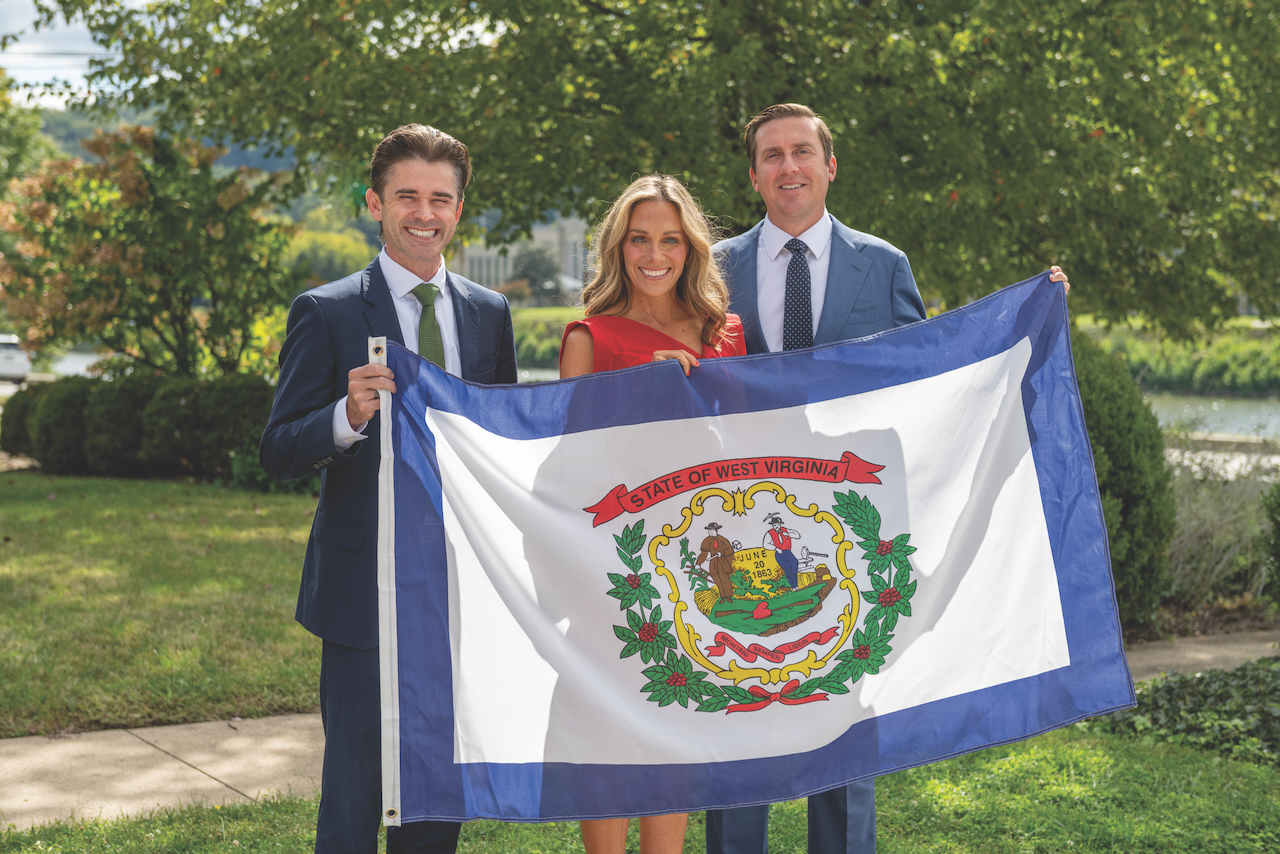On the final day of the West Virginia Chamber of Commerce Annual Meeting & Business Summit, attendees gathered for one last conversation — a panel titled “Coming Home: Finding Success in West Virginia.” For many West Virginians, leaving has long been a necessity to pursue careers that simply don’t exist at home. This session, though, explored the other side of that story: what it means to return, the trade-offs involved and how those choices shape the state’s future.
The panel was led by Amelia Ferrell Knisely, an award-winning journalist who grew up in Rand (“If you’re a sports fan, Rand U,” she joked), left for Nashville and found her way back to Charleston in 2019.
“I really can’t think of a more joyful way to end our time here than to talk about why we love West Virginia and why we’re proud to live here and invest here,” Knisely told the audience. “This panel is also personal to me. I came back because I wanted to raise my daughters here. And I’m so proud to call West Virginia home.”
At her side sat three West Virginians who also left the state in pursuit of opportunities but eventually returned home: Wendy Goodenough, CEO of the West Virginia-based technology and cybersecurity firm DIGIT3; Chris Weikle, director of government affairs at Expand Energy; and Ed Ryan, senior manager of North America trade operations at Lululemon.
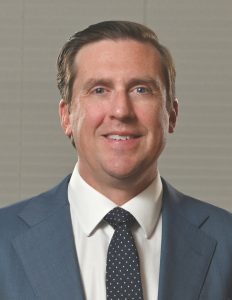
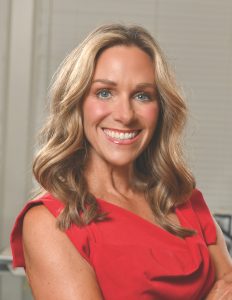
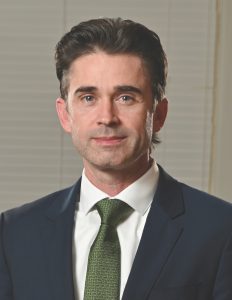
Drawn to the energy of big universities and the promise of big-city law firms, Goodenough went first to Ohio State, then into a career as a divorce attorney in Troy, Ohio. But when the chance came to launch a company back home, she veered from the conventional path.
“I think when you’re an entrepreneur, something just kind of burns inside you,” she explained during the panel. She called her decision to return “the country road less traveled.”
Goodenough has since started a second company, which she owns with her husband Brad. Their daughter Olivia, who graduated from Ohio State’s Moritz College of Law earlier this year, also has decided to forgo a legal career in the big city to return to the mountains, joining her parents at DIGIT3.
“I have been in the mountains of West Virginia for every important chapter of my life,” Goodenough reflected. “And I’ve thought to myself so many times, ‘There’s nowhere else I’d rather be than with these people in these mountains.’”
The relationships she’s built, she added, are “some of the biggest blessings of my life.”
“People looking to relocate to West Virginia perhaps worry that they won’t be able to find a friend group,” she said. “But the women that I get to call my friends are professionally sound and personally wonderful. They are gritty, self-built and loyal. They’re powerhouses. I’d put them up against any group of women anywhere in the United States.”
For Ryan, academic pursuit is what pulled him away. Marshall University had sparked his interest in international trade, but graduate opportunities weren’t available in West Virginia. So, he left for grad school in Washington, D.C., and later began an 11-year career in tariff enforcement and import safety for U.S. Customs before moving into the private sector.
But the rhythm of life in West Virginia — the seasons, the people, the pace — never stopped calling. After two decades in international trade, Ryan accepted a position with Lululemon that allowed him to work remotely from West Virginia.
“We had come back to visit family for Thanksgiving, and all of our children were really upset when it came time to leave,” he recalled. “They were all asking to move home to West Virginia — which was strange, because none of them were born here. My wife said, ‘Let’s just go look at some houses really quick.’”
Back in West Virginia, Ryan found himself newly inspired by the business and civic leaders driving economic development. Now, he wants to channel his international trade expertise to help the state grow.
“When you come back, you’re bringing all of your experiences, connections and knowledge with you to a place where you can utilize those things,” he said. “You come home for one reason — the people, the pace of life, the beauty of the seasons — but once you’re here, you find your purpose. It’s not enough just to come home. Coming home isn’t the victory. The victory is in what we choose to do when we get here.”
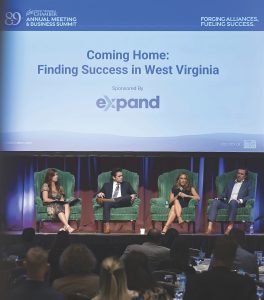
Knisely’s return carried a similar sense of calling. While living in Nashville, she came across a posting for a one-year fellowship with Report for America, a nonprofit that places journalists in newsrooms across the country to cover underreported issues. The assignment: covering the poverty crisis in southern West Virginia for the Charleston Gazette-Mail.
“I was working at The Tennessean, which was really a dream for me, going from a small West Virginia town to work at a big daily,” she said. “It wasn’t so much that I wanted to leave Nashville — I was really happy there — but I felt called to come back to West Virginia and do this job.”
One of her first stories was on a struggling food pantry in Clay County.
“The pantry was serving the bulk of the residents who lived in this small community, and when I went in, the shelves were basically empty,” she recalled. “I just had this moment of, ‘This is why I’m home.’”
Weeks later, she received a call from a stranger who’d picked up an old copy of the Gazette while passing through Lewisburg. He wanted to let her know he had read her article and had made a sizable donation to the pantry.
Knisely decided to stay. Today, she’s an investigative reporter for West Virginia Watch, where her work focuses on poverty, child welfare and government accountability.
“I’ve been so fortunate to find jobs that allow me to report what I’m passionate about,” she said. “It’s not always easy to do this work in a small, tight-knit state, but I’m glad to have a community that wants to move the needle on that. There are so many people in West Virginia cheering on the journalism community.”
Weikle had relocated to Houston to be near his company’s headquarters, but the career recognition he gained never felt as meaningful as the support he’d left behind.
“The higher title, the higher pay, the recognition — those were not the things that ultimately ended up making me happy,” he told the panel, his voice catching with emotion. “It was all those people who surrounded me, who loved me and who pushed me to be better. That’s why I came back.”
He said a community where people share in each other’s success is something to be cherished.
“In a lot of places, you’re looking out for yourself and those immediately around you,” he explained. “But in West Virginia, it’s not just your family that wants to see you succeed; it’s your friends, your community, even the people on your kid’s soccer team. When you succeed, we see that as a victory for all of us.”
As August’s panel drew to a close, Weikle reminded the audience that many who leave still carry a quiet longing to return.
“When you have a job opening, make sure it goes beyond our borders,” he said. “There are a lot of people who want the opportunity to come back. Give them that opportunity. The happiness that they will find here will make them some of the most productive workers you will ever find.”
Goodenough closed on a note of challenge, pointing out that the state’s future depends not only on those who stay, but also on those who choose to return — and on what they create once they do.
“You come from the mountains; you can move mountains,” she said to the crowd. “Why not do it with the people who invested in you, in the place that invested in you?”
